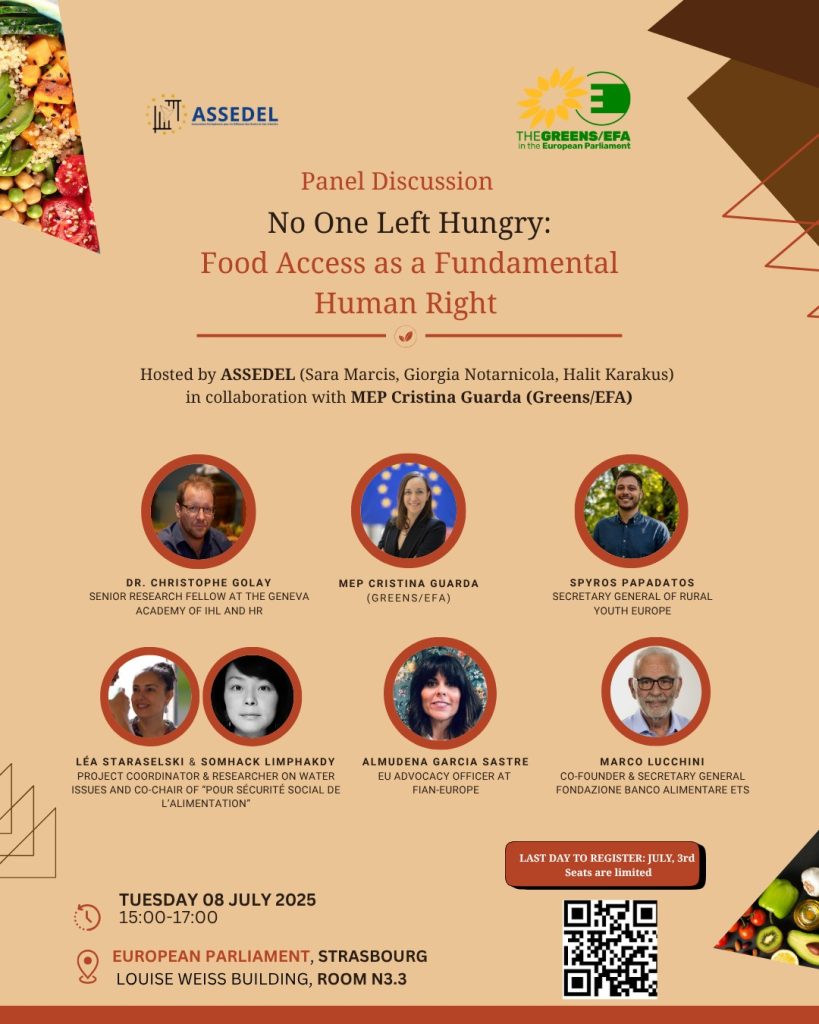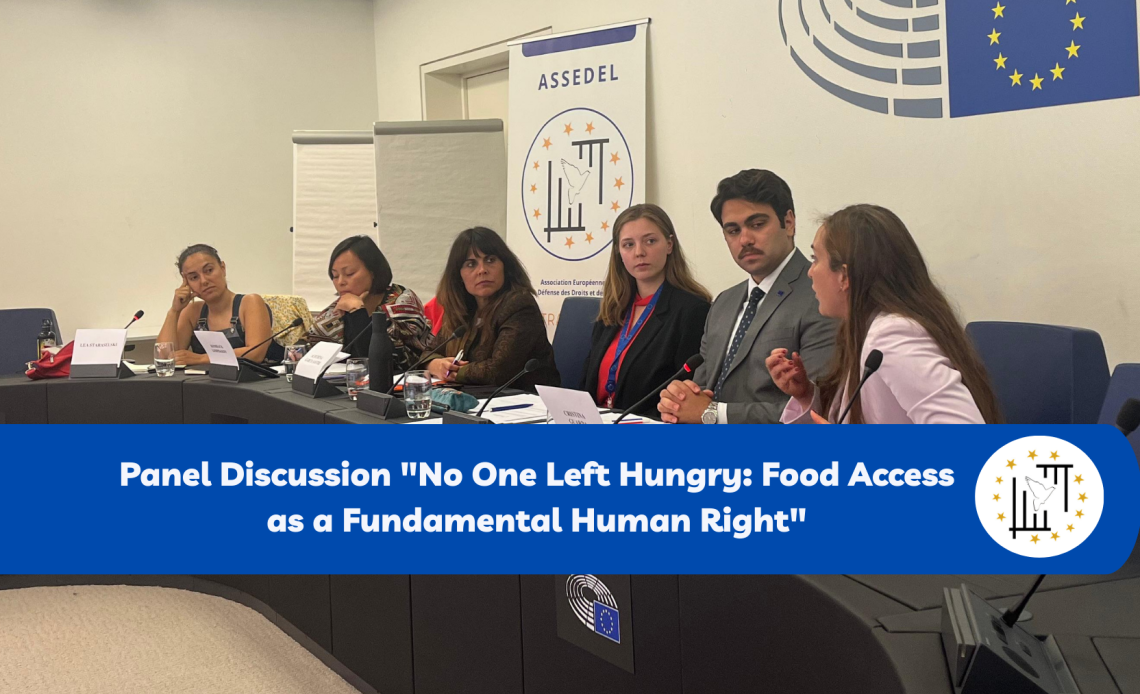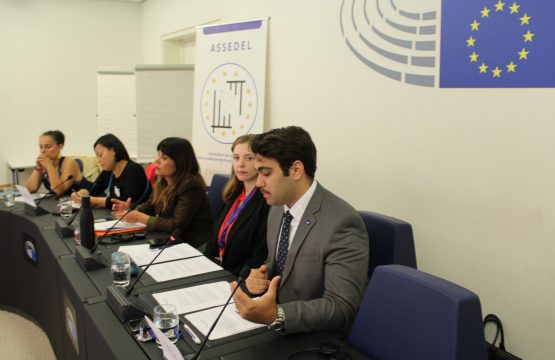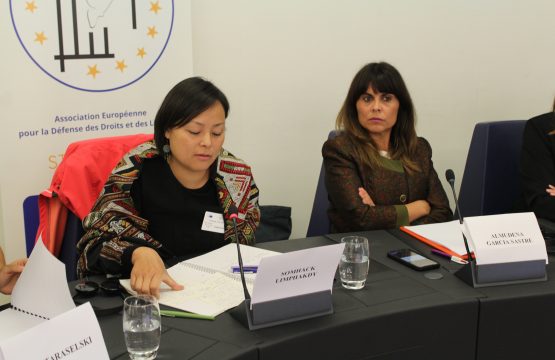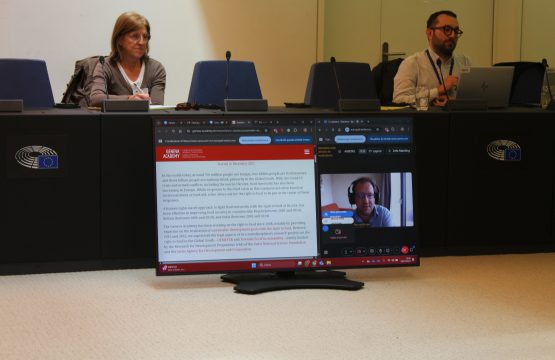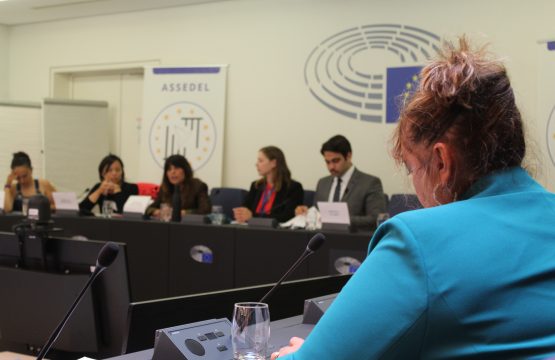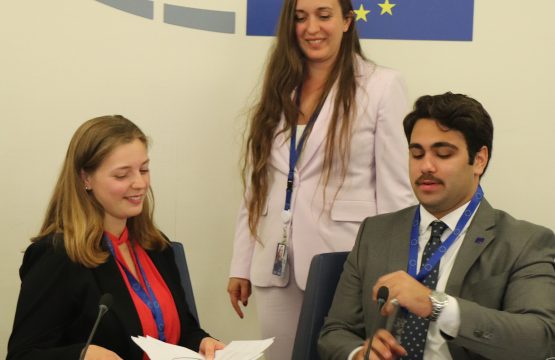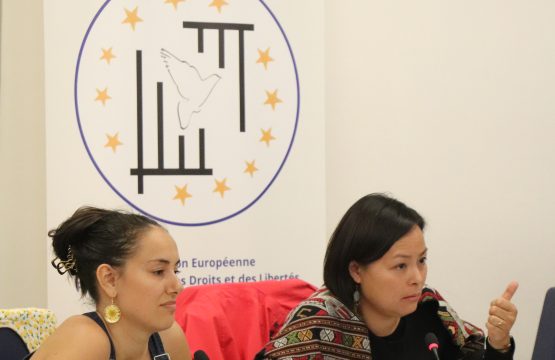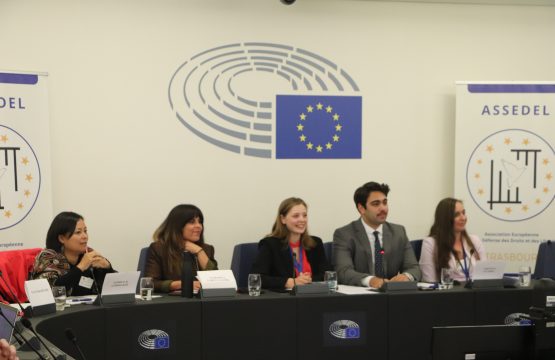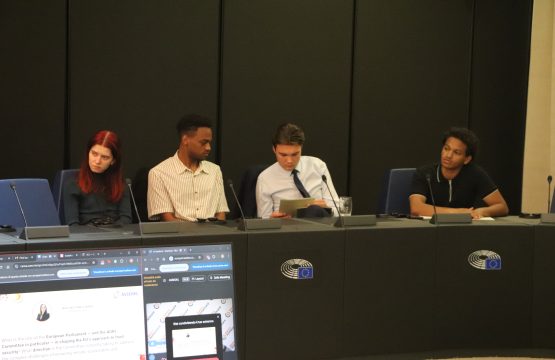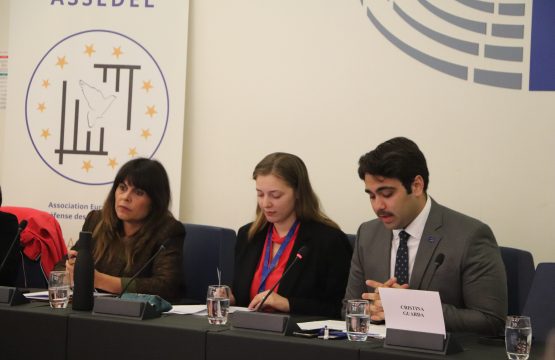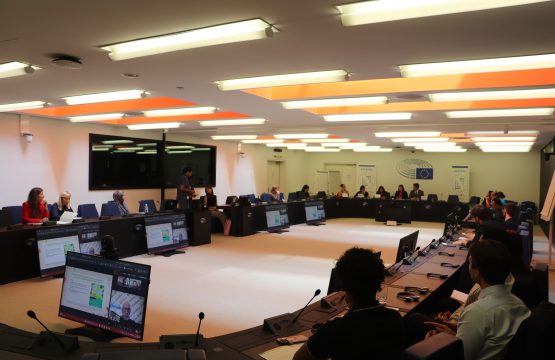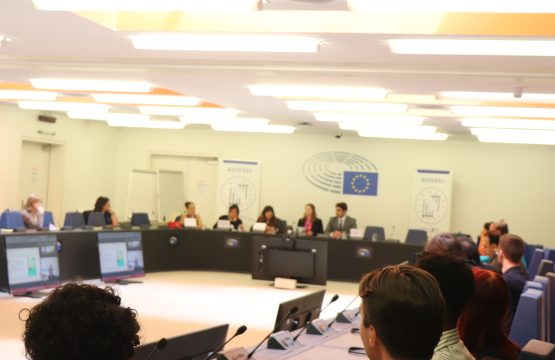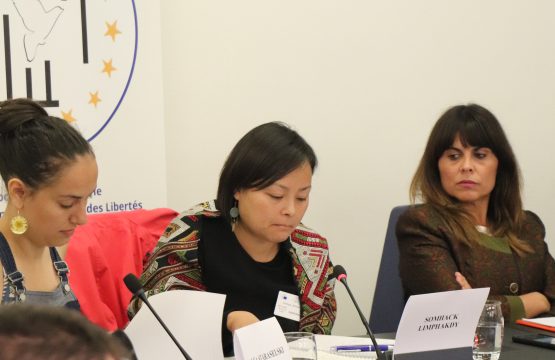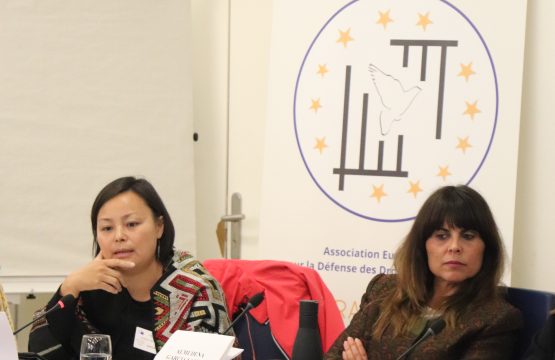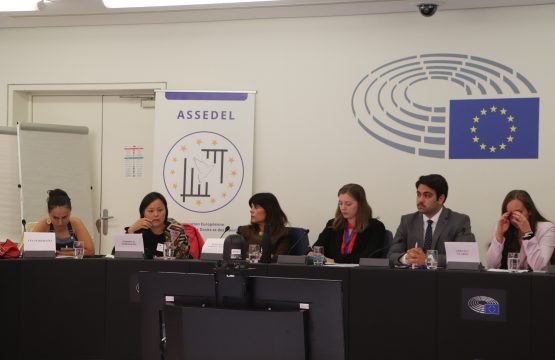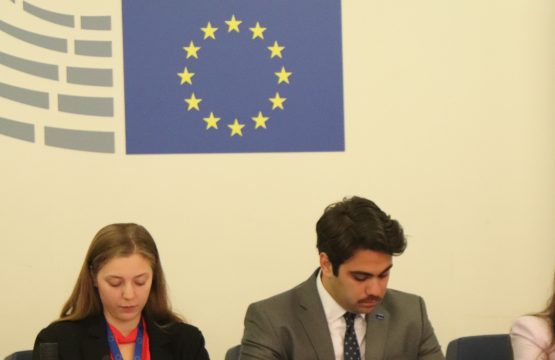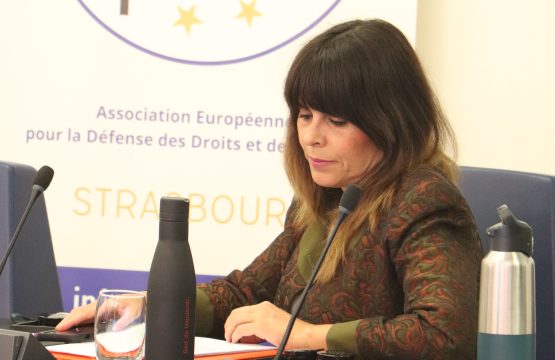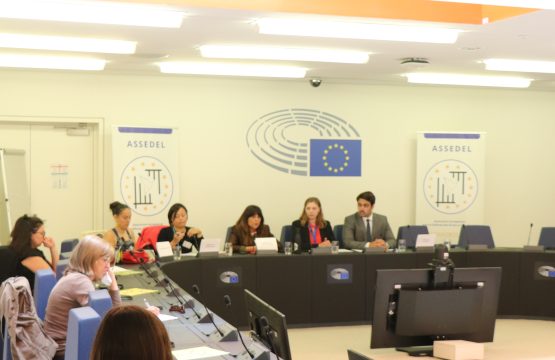We are thrilled to share that our Panel Discussion “No One Left Hungry: Food Access as a Fundamental Human Right” took place on Tuesday, July 8th at the European Parliament in Strasbourg, kindly co-hosted by MEP Cristina Guarda (Greens/EFA). The event aimed to analyze current food insecurity trends from a human rights lens and explore actionable solutions with our panel of leading experts.
Following the successful launch event “Water Security and Human Rights: A Joint Challenge Affecting All” in May, this was the second of the Climate Justice Series organized by ASSEDEL in 2025, where we explore the intersections between climate change and human rights in contemporary societies. We believe that framing climate justice as a shared responsibility is crucial: environmental challenges transcend borders and demand collective awareness, accountability, and a commitment to the core principle of the 2030 Agenda – no one should be left behind.
We were honoured to host some leading experts in the field.
Cristina Guarda, is an Italian Member of the European Parliament from the Greens/EFA group. During her intervention, MEP Guarda reflected on the current state and future direction of the AGRI Committee. She criticized its entrenched focus on competitiveness and deregulation—particularly around food safety standards—and called for a more visionary, people-centered approach. She argued that the Committee must shift toward anticipating vulnerabilities and prioritizing people, reminding us that we are all eaters, and therefore all stakeholders in food security. Guarda stressed the need for more grounded, territorial strategies that reflect the lived realities of diverse communities, cautioning that top-down policies often feel too distant and disconnected from everyday life.
Addressing the role of the EU in supporting grassroots efforts to tackle food insecurity, she pointed to community-led initiatives such as Banco Alimentare as vital responses that restore dignity to those in need. However, she emphasized that the ultimate goal should be to render such interventions unnecessary. In this light, MEP Guarda called on the European Union to ensure accessible funding for these local actions, while respecting the principle of subsidiarity and empowering communities to build lasting food resilience from the ground up.
Almudena Garcia Sastre, EU Policy Expert and Advocacy Officer at FIAN Europe, examined the legal framework shaping European food systems. She pointed out the fragmentation and lack of coherence in EU policies and argued for a shift toward a human rights-based approach rooted in food democracy. Garcia emphasized the limitations of the Common Agricultural Policy (CAP), which she said prioritizes market stabilization at the expense of social and environmental objectives. She stressed the need to evolve CAP and support national and local initiatives to avoid disconnected or ineffective regional strategies.
Christophe Golay, Senior Research Fellow at the Geneva Academy of International Humanitarian Law and Human Rights, provided an overview of the right to food under international law, framing it as a key human right. He also introduced the newly ECI “Good Food for All”, which was officially accepted by the European Commission on the day of the event.
A European Citizens’ Initiative (ECI) is a democratic tool that allows EU citizens to propose new legislation to the European Commission, provided they gather at least one million signatures from across member states.
As a member of its steering committee, Dr. Golay explained that the initiative calls on the EU to systemically guarantee the right to food by building food systems that are just, and sustainable.
Somhack Limphakdy, researcher on water issues and co-chair, and Léa Staraselski, project coordinator of the collective “Pour une Sécurité Sociale de l’Alimentation (SSA) – Alsace” (translated as Social Security for Food) presented the Social Security for Food (SSA) project. Inspired by France’s social security model, it was launched in 2019 to promote the universal right to food by building a system where access to food is treated as a guaranteed right—just like healthcare. The speakers emphasized that the project is meant for everyone, “We are all eaters,” Somhack reminded us, emphasizing that food security concerns everyone and should not be a matter of citizenship, recognizing eating as a fundamental human need. Through a monthly food allowance collectively managed by participants, the initiative puts food democracy into action. The panellists stressed the importance of food democracy, popular education, and community organizing in reshaping food systems to be inclusive, just, and sustainable.
To find out more check here.
Marco Lucchini, Co-founder and Secretary General of Fondazione Banco Alimentare ETS, emphasized that access to food is the first step toward social inclusionWhile food aid addresses urgent material needs, it also serves as a gateway to broader social protections and services, particularly for vulnerable groups such as university students, working poor, and young people in poverty. He also illustrated the principle of subsidiarity through examples from the Veneto region: in Verona, Ronda della Carità supports hundreds of homeless people and responds to surging summer demand. In Venice, the Emporio della Carità Corte del Forner serves 127 families, thanks to targeted weekly support from Banco Alimentare.
Spyros Papadatos, Secretary General of Rural Youth Europe, shared how the organization supports young people in rural areas across the continent. He emphasized the vital role of new generations in shaping sustainable food systems and resilient communities. Through training programs, dialogue, and international exchanges, Rural Youth Europe fosters awareness, solidarity, and civic engagement. Their work builds a strong sense of community and empowers youth to actively contribute to food policy and rural development aligned with their realities.
Overall, the discussion underscored that access to adequate, healthy, and sustainable food is a fundamental human right that must be protected and promoted at every level. As food insecurity rises across Europe due to inequalities, driven by exacerbated climate change, and unsustainable practices, it becomes increasingly clear that our current systems need transformation. This transformation requires moving beyond a market-based approach and embracing food as a matter of justice, dignity, and social inclusion. Guaranteeing the right to food means addressing structural imbalances, empowering local actors, and ensuring policies grounded in solidarity, human rights, and democratic participation.
In conclusion, at ASSEDEL we believe that food justice is inseparable from human rights and environmental sustainability. We advocate for inclusive, participatory, and rights-based food policies that center the needs of people and communities. We reaffirm one more time the fundamental commitment of the 2030 Agenda: truly leaving no one behind must remain the guiding principle driving all action toward food justice and human rights.
To see the presentation of the event, click here.
